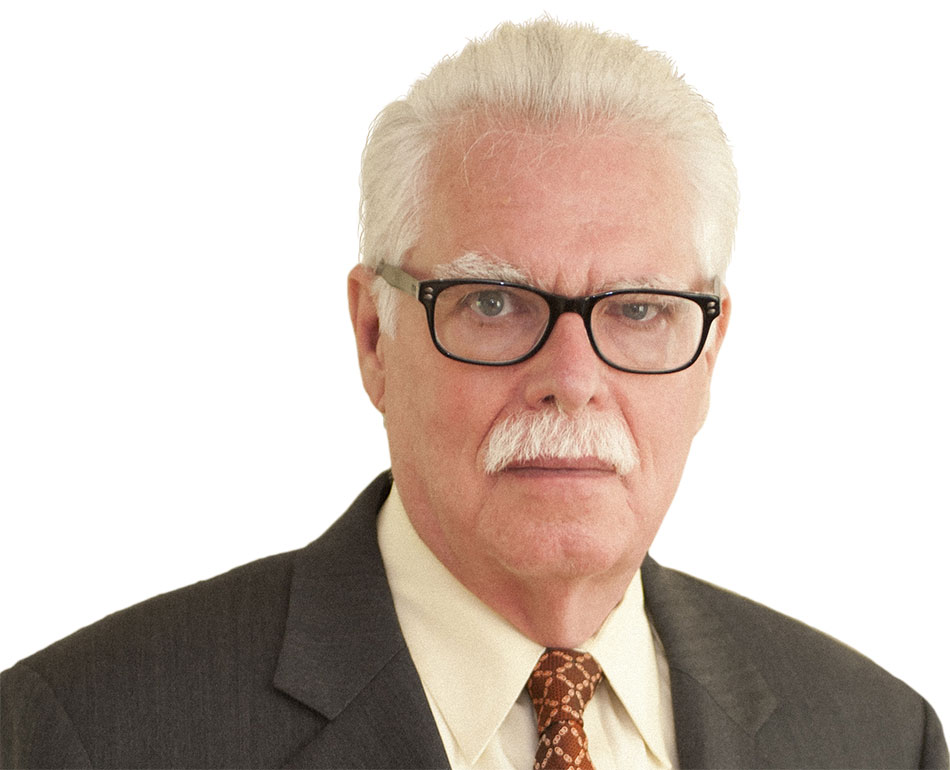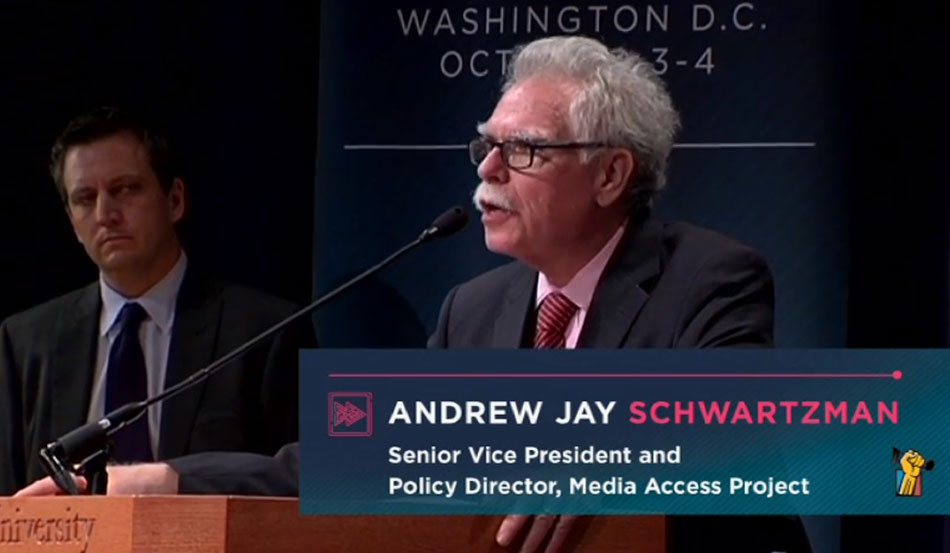The Five Spot: Andrew Jay Schwartzman, Senior Counselor, Benton Institute for Broadband & Society
Veteran attorney, advocate talks about laying down the public-interest law

The smarter way to stay on top of the multichannel video marketplace. Sign up below.
You are now subscribed
Your newsletter sign-up was successful
For more than two decades, Andrew Schwartzman ran Media Access Project, a nonprofit that battled media ownership deregulation in the courts (including the U.S. Supreme Court) and dealt with issues before the FCC and Congress. Since July 1, 2019, he has been senior counselor at the Benton Foundation Institute for Broadband & Society, as well as maintaining a consulting practice. Throughout, he has fought tirelessly for his and his clients’ view of the media’s public-interest obligation. He spoke with Multichannel News senior content producer, Washington, John Eggerton.
ALSO READ: Supreme Court Probes Broadcast Dereg Arguments
What is your role at the Benton Foundation Institute? Along with Gigi Sohn and Jon Sallet, I serve as Benton’s eyes and ears in the D.C. policy process. I also represent Benton in FCC rulemakings and litigation. Following the day-to-day evolution of the policymaking process is more labor-intensive today. My mission includes sharing my five decades of experience on legal and policy advocacy as a mentor to other public-interest advocates.
You participated in the lower court oral argument on media-ownership rules, which recently got a Supreme Court hearing. Isn’t focusing on broadcasters fighting the last war? I think broadcast-ownership limits remain very timely. These rules ensure a diversity of voices and perspectives at the local level. The industry quite rightly says that over-the-air TV and radio continue to be the most important source of news and information, especially at the local level. CNN and FNC [Fox News Channel] don’t help people decide for whom to vote for on the City Council, and they don’t provide high-school football scores or local weather. Social media have become a means of redistributing news generated by others and TV and radio websites are among the major sources of forwarded links about local issues.

How does having to do oral arguments remotely change the dynamics? The Supreme Court’s temporary use of telephonic oral arguments significantly changes the dynamic. … In the COVID-era telephonic system, each justice is called on according to seniority and gets a few minutes to ask questions, one on one. Not only do the advocates have less opportunity to determine the direction of their presentation, but they lose the benefit of seeing the facial expressions and body language of the justices. This makes a very big difference.
ALSO READ: Sen. Amy Klobuchar Introducing Big Tech Antitrust Bill
Should the government start regulating big tech? Why or why not? I have supported the idea of creating a new specialized agency to regulate competition in the tech industry. The question of what to do when a few companies control a major sector of the economy is hardly a new one, but traditional antitrust concepts and remedies are not fine-tuned for digital technologies. We need to explore the best way to preserve free speech values in a system that is dominated by a few large companies.
The smarter way to stay on top of the multichannel video marketplace. Sign up below.
What’s your favorite TV show? All-time, The Wire. Runner up, Mad About You. Current favorite, The Marvelous Mrs. Maisel.
Favorite app? FinePrint. It lets me print out news articles for later reading without extraneous material.
Destinations on your vacation bucket list? Israel, Hong Kong, New Zealand.
Favorite podcast? Pivot
Favorite recent meal, where and what did you eat? None. I’m on the Atkins diet (20 pounds, thank you for asking).
What would you like a Biden FCC to concentrate on once it gets a majority? The immediate challenge is dealing with the impact of COVID. Thus, extending broadband access support for lower-income communities must be its first priority. Like many other industry sectors, I expect large broadcast groups to claim the pandemic somehow justifies lifting ownership limits. While I share the concern of finding ways to promote local journalism, I believe that allowing additional local concentration would hurt, not help. Promoting a healthy and diverse local media environment is a long-term issue. We can start by inviting new entrants through expanding opportunities for people of color and women to enter the business.
Contributing editor John Eggerton has been an editor and/or writer on media regulation, legislation and policy for over four decades, including covering the FCC, FTC, Congress, the major media trade associations, and the federal courts. In addition to Multichannel News and Broadcasting + Cable, his work has appeared in Radio World, TV Technology, TV Fax, This Week in Consumer Electronics, Variety and the Encyclopedia Britannica.

